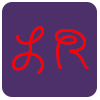
One of the best parts of the board gaming experience is finding a fun group of people with whom to play! Sometimes, though, coordinating a game night is easier said than done. We all must occasionally forego the group experience and face the world as the Lonely Only. But fear not! The world of solo-play is a vast and exciting realm! What follows is a chronicle of my journey into the solo-playing world – notes on gameplay, mechanics, rules, difficulty, and overall experience with solo variations of commonly multiplayer games! I hope this will provide some insight as you continue to grow your collection, or explore your already owned games!
| Sagrada (2017) | Floodgate Games |
| 1-4 Players | 30-45 minutes |
| Ages 14+ | BGG Weight – 1.87 / 5 |
In Sagrada, you are an artist who has been tasked with creating a beautiful stained glass window. Working piece by piece, you build a masterpiece – the likes of which have never before been witnessed. Finding the perfect pieces can be tricky, but through careful use of your tools and with your artistic vision, you can create the best window in the town! The game is played over 10 rounds in which players draft dice and place them in their windows, following certain placement restrictions. A set number of tools are available for use, and can aid you in manipulating the dice to your benefit. Points are scored based on successful completion of private and public objectives, and the player with the highest score at the end of 10 drafting rounds is the winner!
My favorite part about playing Sagrada solo is that the game is essentially played the same way, regardless of player count. The only difference is how you win! In both group and solo play, each player will draft two dice every round. In group play, any leftover dice are discarded, while in solo play, the remaining two dice will be added towards the Target Score – the score you are trying to beat at the end of the game! To find the Target Score, you add all of the die values of your unused dice from each round. If, at the end of the 10 rounds, you have earned more points than the Target Score, you win! But if the Target Score is higher than your final score, you lose.
The game play differences are simple enough, but actually winning the game solo is a different story. I have played Sagrada solo quite a bit, and have won maybe 25% of the time. Depending on which window card and objectives are in play, and because of placement restrictions, I often have to sacrifice high-valued dice to the Target Score. And since there are no placement restrictions for the Target Score, and two dice are added to it each round, it is very easy for that score to sky-rocket. I either barely pull off a win, or I lose by a huge margin. Playing in a group is nicer in this regard because the other players have the same placement restrictions that I have – nobody is just getting points for free. Without the Target Score, there really is no way to play Sagrada solo, but it makes the game feel a little imbalanced to me.
Just because it is difficult to win solo does not mean that I do not like the game. It requires quite a bit of strategy, and that keeps me engaged for the entire game. There are dice placement restrictions based on color AND value, so there are two different ways in which you have to constantly be strategizing. You can’t just focus on either value or color – your strategy must always be changing based on which color dice are drawn and what values are subsequently rolled. Even with the amount of strategy required, Sagrada actually plays pretty quickly as a solo game, and I really like that. I like the challenge of this game, and often try to play until I can win. Since I can finish an entire solo game in probably 10-15 minutes, I am able to get multiple plays in a row!
Sagrada is a challenging game to play solo, but not in a way that feels futile. I don’t win a lot, but the strategic implications and the pretty dice colors are what keep me coming back to this game! If you haven’t tried Sagrada solo yet, I’d encourage you to give it a shot. But be warned – you might not always win.

